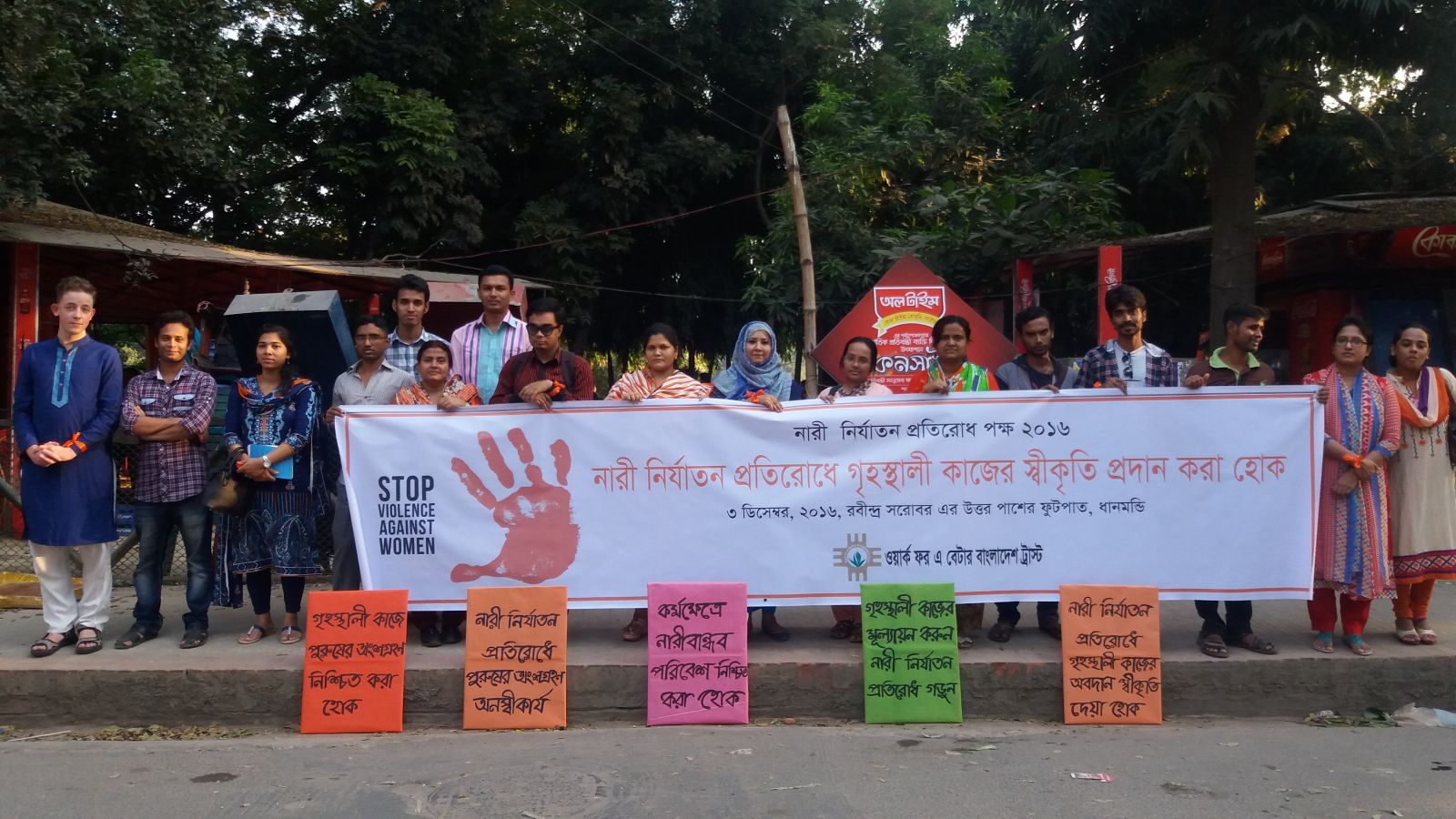
 In the present era, women developed a lot in socio-economic and political areas. Though women play an important role to achieve successful indicators of society, they are being tortured at their homes. The economical value of house-hold work is about 1.5 multiply with the value of GDP. Due to have devaluation of women’s works in families, there is no positive sign of resisting women torture. Thus, recognition of women’s works and men’s participation on those both are necessary to reduce violence against women. On 3rd December 2016 at 4 p.m. a leaflet campaign on ‘Recognize House-hold Works to Eliminate Violence Against Women’ was organized by Work for a Better Bangladesh (WBB) Trust at Rabindro Sarabar of Dhanmondi Lake.
In the present era, women developed a lot in socio-economic and political areas. Though women play an important role to achieve successful indicators of society, they are being tortured at their homes. The economical value of house-hold work is about 1.5 multiply with the value of GDP. Due to have devaluation of women’s works in families, there is no positive sign of resisting women torture. Thus, recognition of women’s works and men’s participation on those both are necessary to reduce violence against women. On 3rd December 2016 at 4 p.m. a leaflet campaign on ‘Recognize House-hold Works to Eliminate Violence Against Women’ was organized by Work for a Better Bangladesh (WBB) Trust at Rabindro Sarabar of Dhanmondi Lake.
The speakers of the campaign mentioned that every year various activities are arranged for 16 days (25th November - 10th December) to eliminate violence against women. The goal to celebrate the day is for increasing awareness to eradicate women and children torture. This year, theme for the day is ‘resistance’, means resistance women torture. Again, information from the research indicates it is assumed that women usually do not do any work since their works are not directly connected with income. As a result, they are deprived and victimized. However, this could be reduced if women would have proper evaluation of their house-hold works.
Moreover, the speakers mentioned that a woman is engaged with 45 different house-hold works for everyday, without which daily life would be impossible. Besides, the women who are affixed with economical activities also take part at house-hold works. In fact, women’s activities at home are devaluated since our society believes that women are responsible to those. However, due to reduce torture to women, it is necessary to ensure males’ participation at house-hold works beside women.
In addition, women are facing obstacles to establish their peace, safety, and development with long term physical and psychological aspects because of having torture to them. Therefore, to stop torture it is important to ensure women’s participation at education, community, economy, agriculture, business, mass-communication, and health sectors beside recognizing their house-hold works and changing social rules and regulations. After all, to establish a bright future we all have to work together where there will be no more torture.
In the campaign, Gaous Pearee, Director, WBB Trust; Naznin Kabir, Deputy Program Manager; Advocate Romana Akter Eva, Senior lecturer (EUDA); Mandy Indrani Mukhuti, Youth co-coordinator, Institute of Wellbeing (IWB) and Syeda Anonna Rahman, Program Manager, WBB Trust; were present.
